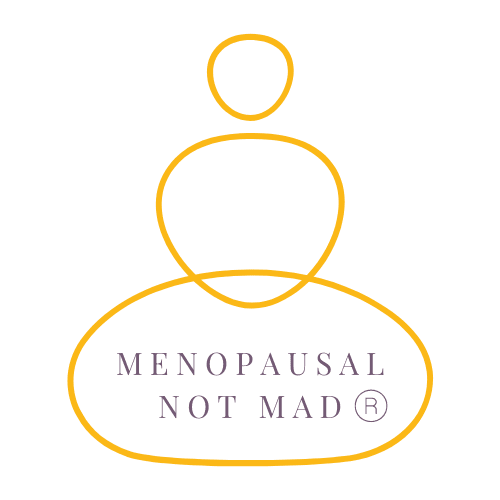Will HRT make my PMDD worse?
What is PMDD?
Premenstrual dysphoric disorder (known as PMDD) is similar to premenstrual syndrome (PMS) but is often much more more serious.
PMDD can cause severe depression or anxiety in the week or two before your period starts and can lead to some women feeling unable to cope.
Symptoms usually go away two to three days after your period starts but the impact of the disruption is left behind.

Many of my own community and clients have a sensitivity or slight intolerance to certain progesterones but this is not as common as it seems so there’s no need to feel anxious about starting HRT.
Progesterone is vital to protect the uterus lining when we introduce Estrogen, as it stops the endometrium (uterus lining) from over thickening and becoming more at risk of cancer.
In most cases Progesterone is a relaxant and can have a calming effect on our bodies but in some cases it can cause a feeling of anxiety with a smaller number of women experiencing a more extreme sensitivity known as PMDD.

A severe negative mood response is called Premenstrual Dysphoric Disorder (PMDD)
This affects around 1/20 women (5%)
Most women enjoy the progesterone element of their cycle or their HRT as it converts to a neurosteroid which calms GABA receptors (you may have been given a drug called gabapentin which does the same) which then acts as a sedative.
High progesterone (during pregnancy for example), can make you feel sleepy.
Birth control pills do not convert in this way so don’t offer this added bonus.
If a woman suffers with PMDD, her body will not be converting as above and she will not feel calm.
She may instead feel: Anxious, Angry or Depressed, with some feeling suicidal.
What Can We Do?
There are many options available and as always, we are all different and it’s all about balance.
SSRI antidepressants have historically been used and it is very useful to use the birth control pill to completely shut off any ovulation and progesterone.
However; some SSRI drugs can increase the risks of Osteoporosis and birth control can cause mood issues for some.
As you may know from anything I have ever said or written; we need our hormones to manage our long term health so stopping our hormones long term, is not ideal, especially when we are looking to add in hormones to support peri and post menopause.
From an HRT perspective I try to find the right balance between estrogen and progesterone so that the woman is able to benefit from her HRT but also has a safe and manageable dose of progesterone.
This may be a lower dose or a dose that is only administered quarterly. Either way, this needs to be monitored by a doctor and cannot be managed by the patient alone.
Non Medical Help
There are a few effective things you can do to help yourself if this is your challenge.
Reducing histamine in the diet is a good thing to do
See HERE for more info on histamine with HRT
Reducing dairy intake is known to help
I always recommend daily magnesium supplementation anyway but this will also help with the GABA response (300mg of Glycinate is good)
It is also good to add in vitamins B6 and B12 and Taurine (this really calms and is available from good health food shops)
Some women with extreme life impacting symptoms will resort to having a hysterectomy which would then bypass the need to use progesterone as part of HRT but this is not a first option.
Whatever you decide, it’s important to view the process as a search to find your perfect balance to achieve both short and long term health and not to view your hormones as the enemy.
There’s always a way.

Jane Pangbourne is an HRT Educator, accredited nutritionist & women’s health practitioner.
When you need more help with your hormones, your symptoms, or your HRT choice, you can book a consultation via the services page HERE





